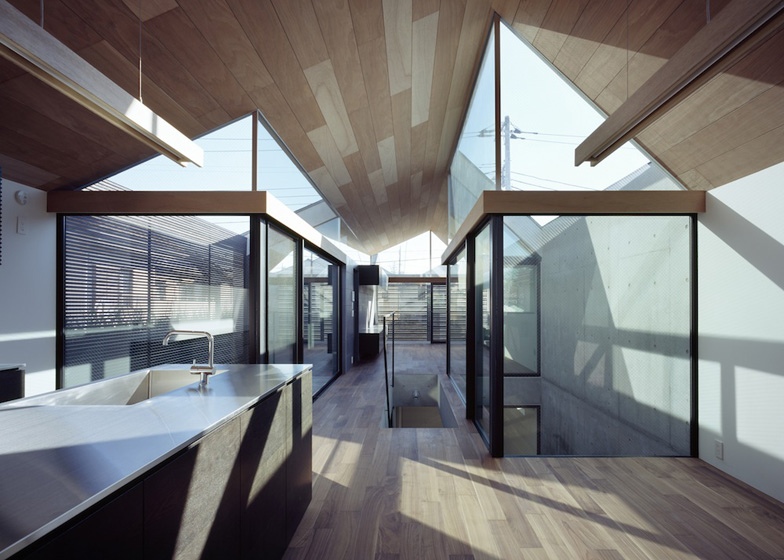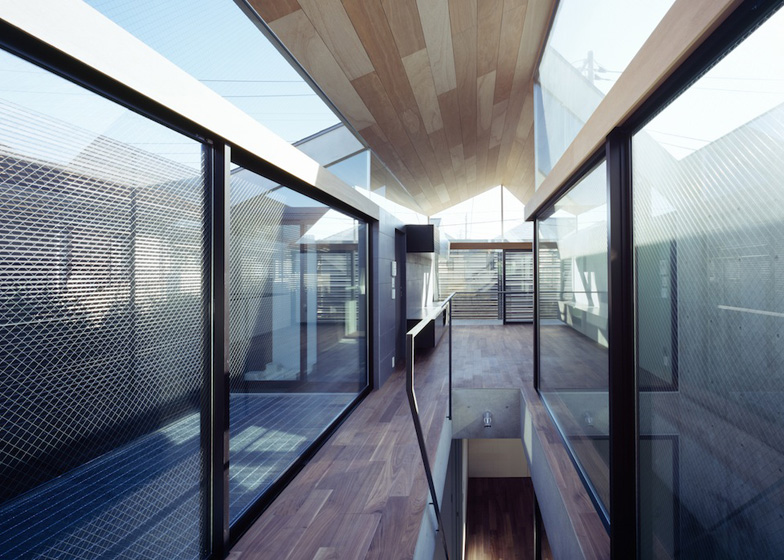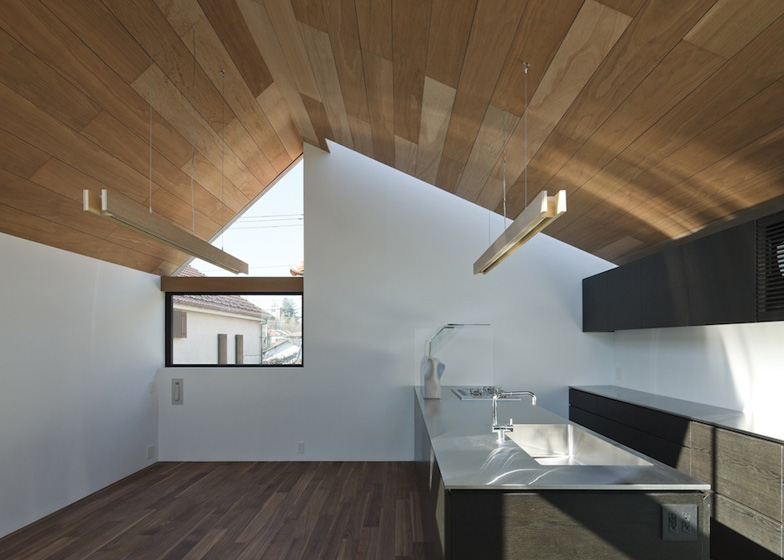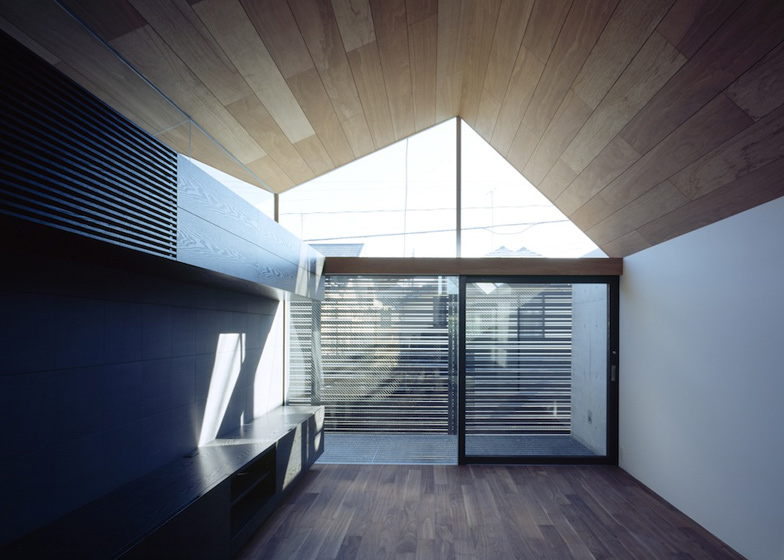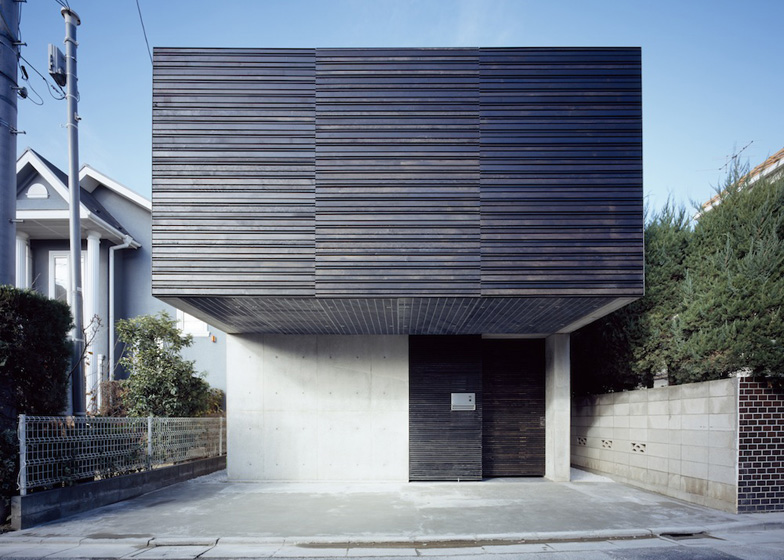This house in Tokyo by Apollo Architects & Associates has skylights in the roof and holes in the floor plates, allowing daylight to reach right down to the basement (+ slideshow).
Named Neut, the house was designed for a pair of music-lovers, so Apollo Architects & Associates was asked to add a studio with soundproofed concrete walls in the basement of the three-storey structure.
The studio opens out to a glazed triple-height courtyard, which benefits from the light filtering in from above.
A second courtyard is located on the opposite side of the house on the ground floor. This space also sits below a skylight, although it is interrupted by a latticed deck on the uppermost floor.
All bedrooms are positioned on the ground floor, while a living room and bathroom occupy the top floor. All of these rooms face down onto the courtyards through floor-to-ceiling windows.
Interior surfaces are finished in a mixture of raw concrete, white plaster and timber panels. Meanwhile, the facade is dominated by timber louvres, which enclose a cantilevered balcony at the edge of the living room.
Tokyo-based Apollo Architects & Associates is led by Satoshi Kurosaki. The studio also recently completed Still, a concrete house for a surgeon, and Flag, a narrow house with a glazed ground-floor gallery.
See more architecture by Apollo Architects & Associates »
Photography is by Masao Nishikawa.
Here's a project description from Apollo Architects & Associates:
Neut, Suginami ward, Tokyo
The ophthalmologist couple purchased this narrow, but deep, parcel of land in a quiet neighborhood to build a house where they could enjoy their hobby of listening to the music.
On the basement level, the courtyard and double-pane glazing provide sound-buffer for this RC-structure studio which is insulated on the exterior.
Natural light enters the studio through the courtyard and makes the space exceptionally inhabitable as a basement.
The balcony extends from the building and acts as the canopy over the garage with pilotis and entrance.
The horizontal wooden slats are used as balcony balustrade to block the view from the street while allowing the air to breeze through.
The randomly sized wooden pieces give the facade distinctive appearance. The ground floor contains private rooms such as master bedroom and children's bedrooms.
The second floor, on the other hand, is intended as family room. The generously-sized gabled-roof space has two courtyards which accentuate the floor plan with their curves.
Through the clerestory windows, the outside scenery and natural light enter the space.
The wet area is separated from the living room by the tiled wall with its upper part glazed. The same wooden panel of the living room ceiling is used in the wet area to create the appearance of a continuous space.
When viewed from inside, the horizontal wooden louver also accentuates the interior space while securing the privacy.
By using only the simple finishing material on the interior, the space has the austere and coordinated feel.
Furthermore, the combination of concrete and wood, as well as the gabled roof motif add warmth to the room's ambience.
This design technique allows the occupants to forget that they are in a dense residential district. It is one of the most popular solutions in the urban setting.

